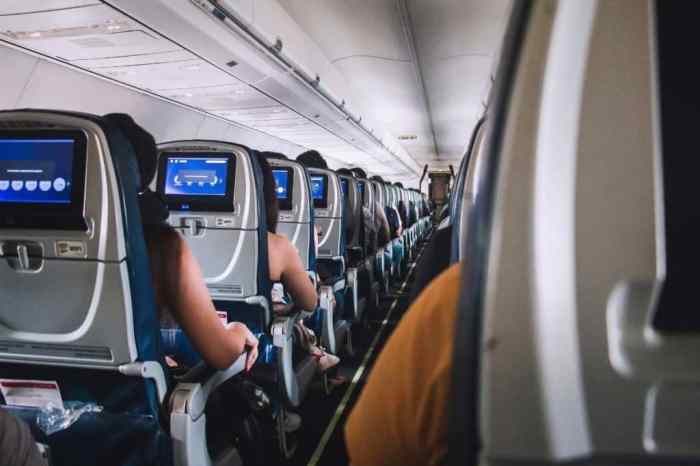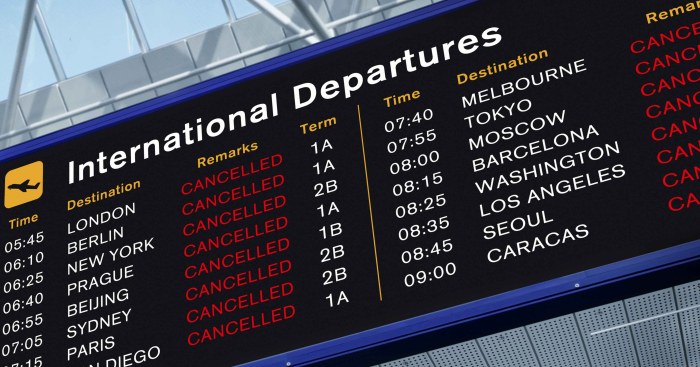Charter Flights: A Flexible and Efficient Travel Option

Charter flights offer a unique and often advantageous alternative to traditional scheduled flights. These flights, arranged for specific groups or individuals, provide a level of customization and flexibility that commercial airlines cannot match. Whether you’re planning a corporate retreat, a family reunion, or a luxury vacation, charter flights can cater to your specific needs and preferences.
The allure of charter flights lies in their ability to tailor the travel experience. From choosing the departure and arrival times to selecting the aircraft type and onboard amenities, you have the power to design your journey. This level of control, coupled with the potential for cost savings, makes charter flights an increasingly attractive option for discerning travelers.
What are Charter Flights?

Charter flights are a unique way to travel, offering flexibility and customization that traditional scheduled flights often lack. Unlike scheduled flights, which operate on a fixed timetable, charter flights are arranged for specific groups or individuals, allowing for tailored itineraries and destinations.
Charter Flights vs. Scheduled Flights
The main difference between charter flights and scheduled flights lies in their operational model. Scheduled flights operate on a pre-determined schedule, flying between specific airports at set times, regardless of passenger demand. Charter flights, on the other hand, are arranged on demand, with the flight schedule and route determined by the needs of the charterer.
- Flexibility: Charter flights offer greater flexibility in terms of departure and arrival times, destinations, and even the aircraft type used. This is particularly beneficial for groups with specific requirements, such as sports teams, corporate events, or leisure groups.
- Customization: Charter flights can be tailored to the needs of the charterer, with options for onboard services, catering, and entertainment. This allows for a personalized travel experience that caters to specific preferences and requirements.
- Cost: Charter flights are often more expensive than scheduled flights, especially for smaller groups. However, for larger groups or those with specific requirements, charter flights can be more cost-effective than booking multiple tickets on scheduled flights.
- Direct Flights: Charter flights often operate as direct flights, eliminating the need for layovers and reducing travel time. This is particularly advantageous for long-distance travel.
Types of Charter Flights
Charter flights can be categorized into various types, each serving a specific purpose:
- Group Charters: These flights are arranged for groups of people traveling together, such as sports teams, corporate groups, or tour groups. Group charters offer cost savings for large groups and provide a dedicated travel experience.
- Private Charters: Private charters are flights arranged for individuals or small groups who desire a private and luxurious travel experience. These flights offer complete privacy, customized service, and flexibility in itinerary.
- Ad-Hoc Charters: These flights are arranged for specific events or purposes, such as transporting goods, relocating personnel, or supporting humanitarian missions. Ad-hoc charters offer flexibility and efficiency for specialized transportation needs.
- Government Charters: Government charters are used for official travel by government officials, diplomats, or military personnel. These flights provide security and confidentiality for sensitive missions.
Benefits of Charter Flights

Charter flights offer a unique travel experience that can be advantageous for various travelers, particularly groups and individuals seeking flexibility, customization, and potential cost savings. These benefits set them apart from scheduled flights, making them a compelling choice for specific travel needs.
Flexibility and Customization
Charter flights provide a high degree of flexibility and customization, allowing travelers to tailor their journey to their specific requirements.
- Departure and Arrival Times: Charter flights operate on a schedule determined by the charterer, eliminating the constraints of fixed departure and arrival times associated with scheduled flights. This allows for greater flexibility in planning travel itineraries, especially for groups with specific time constraints.For example, a business group might prefer to depart early in the morning to maximize their time at their destination, while a sports team could schedule a late-night flight to avoid peak travel times.
- Route Options: Charter flights can be arranged to fly to a wide range of destinations, including those not served by scheduled airlines. This is particularly beneficial for travelers visiting remote or less frequented locations, as it eliminates the need for connecting flights or lengthy travel times.For instance, a group of tourists planning a trip to a remote island might find a charter flight to be the most convenient and efficient option.
- Baggage Allowance: Charter flights often offer more generous baggage allowances compared to scheduled flights. This is particularly useful for travelers carrying bulky or oversized luggage, such as sports equipment, musical instruments, or large quantities of personal belongings.
- Onboard Amenities: Charter flights can be customized to include specific onboard amenities tailored to the passengers’ preferences. This can range from providing specific food and beverage options to arranging for entertainment, such as live music or in-flight movies.
Cost Savings
Charter flights can potentially offer cost savings, especially for groups or individuals with specific travel needs.
- Group Travel: Charter flights are particularly cost-effective for group travel, as the cost of the flight is shared among all passengers. This can result in significant savings per person compared to booking individual tickets on scheduled flights. For example, a corporate retreat or a family reunion might find a charter flight to be a more affordable option than booking individual seats on a commercial airline.
- Peak Season Travel: During peak travel seasons, charter flights can offer competitive pricing compared to scheduled flights, which often experience higher fares due to increased demand. This can be beneficial for travelers planning trips during holidays or other popular travel periods.
- Direct Flights: Charter flights often operate direct flights, eliminating the need for connecting flights and associated costs, such as baggage fees or airport transfers. This can be a significant cost-saving factor, especially for long-distance travel.
Charter Flight Planning and Booking
Planning and booking a charter flight involves a series of steps, from identifying your needs to finalizing the details. This process allows you to customize your travel experience, ensuring a smooth and enjoyable journey.
Selecting a Charter Operator
Choosing the right charter operator is crucial for a successful charter flight. Factors to consider include:
- Reputation and Experience: Look for operators with a proven track record, positive customer reviews, and a strong safety record.
- Aircraft availability: Ensure the operator has the right aircraft type and size to accommodate your group and luggage.
- Pricing and Transparency: Obtain clear and detailed quotes, including all fees and potential additional costs.
- Customer Service: Evaluate the operator’s responsiveness, communication, and willingness to address your concerns.
Negotiating Flight Details
Once you’ve selected a charter operator, you’ll need to negotiate the specifics of your flight:
- Flight Dates and Times: Discuss your preferred departure and arrival times, considering any potential limitations based on the aircraft type and route.
- Route and Stops: Determine the optimal route for your destination, taking into account factors like flight time, potential stopovers, and cost.
- Catering and Amenities: Discuss your catering requirements, such as meal preferences, beverages, and any special dietary needs. Also, consider amenities like Wi-Fi, entertainment systems, and seating configurations.
- Baggage Allowance: Clarify the baggage allowance for your group and any potential extra baggage fees.
Choosing a Charter Flight Destination
The choice of destination depends on your travel goals and preferences:
- Group Size and Interests: Consider the number of people in your group and their shared interests, such as adventure, relaxation, or cultural exploration.
- Accessibility and Infrastructure: Evaluate the availability of airports, transportation options, and local services at your desired destination.
- Time of Year and Weather: Research the weather conditions and seasonal factors at your chosen destination, ensuring it aligns with your travel plans.
- Cost and Budget: Determine the overall cost of the trip, including airfare, accommodation, activities, and other expenses.
Charter Flight Operations: Charter Flights

Charter flight operations involve a complex and carefully orchestrated process that ensures the safe and efficient transportation of passengers and cargo. From pre-flight planning to post-flight analysis, a multitude of procedures and regulations are in place to guarantee a smooth and secure journey.
Air Traffic Control and Regulatory Bodies
Air traffic control plays a crucial role in managing the flow of aircraft in the airspace, ensuring separate, on, and preventing collisions. Charter flights, like any other commercial flight, are subject to air traffic control directives and regulations. The Federal Aviation Administration (FAA) in the United States, and similar regulatory bodies in other countries, establish safety standards and regulations for charter flights, including:
- Aircraft maintenance and certification
- Pilot qualifications and training
- Flight operations procedures
- Emergency Preparedness
Charter operators are required to comply with these regulations to obtain and maintain their operating certificates.
Safety Standards and Regulations
Charter flights are subject to stringent safety standards and regulations, which are designed to ensure the highest level of safety for passengers and crew. These regulations cover various aspects of flight operations, including:
- Aircraft maintenance: Regular inspections and maintenance are mandatory to ensure aircraft are in airworthy condition.
- Pilot qualifications: Pilots must hold valid licenses and undergo rigorous training and recurrent training to maintain their proficiency.
- Flight operations procedures: Standardized procedures are followed for takeoff, landing, and in-flight operations to minimize risks and ensure safety.
- Emergency preparedness: Charter operators are required to have comprehensive emergency plans and procedures in place to handle any unforeseen situations.
Charter operators must adhere to these regulations to ensure the safety of their passengers and crew.
Charter Flights for Different Purposes

Charter flights are incredibly versatile, catering to a wide range of needs across various industries and organizations. They offer a tailored solution for specific travel requirements, often surpassing the capabilities of scheduled commercial flights.
Business Travel
Charter flights are frequently used for business travel, particularly for corporate executives, sales teams, and high-level delegations. These flights offer several advantages, including:
- Increased Flexibility: Charter flights allow businesses to schedule flights according to their own needs, rather than being restricted to pre-determined commercial flight schedules. This flexibility is particularly valuable for time-sensitive business trips or when traveling to remote locations.
- Enhanced Privacy and Security: Charter flights provide a private and secure environment for business travelers, allowing them to conduct confidential meetings or carry sensitive materials without concern for public scrutiny. This is especially important for companies dealing with sensitive information or those operating in high-risk environments.
- Improved efficiency: Charter flights streamline the travel process, eliminating the need for airport layovers and long security lines. This saves valuable time for business travelers, allowing them to focus on their work or other important activities.
Examples of industries that frequently utilize charter flights for business travel include:
- Energy and Resources: Companies in the energy and resources sector often use charter flights to transport executives, engineers, and specialists to remote oil rigs, mines, and other operational sites.
- Finance and Investment: Financial institutions and investment firms use charter flights to facilitate quick and efficient travel for mergers and acquisitions, site visits, and client meetings.
- Technology and Telecommunications: Technology companies and telecommunications providers often utilize charter flights to transport teams for product launches, conferences, and client visits.
Sports and Entertainment
Charter flights are essential for the sports and entertainment industry, enabling teams, performers, and production crews to travel efficiently and comfortably.
- Team Travel: Professional sports teams rely heavily on charter flights for their demanding schedules, allowing them to transport players, coaches, and staff to away games and tournaments without the hassles of commercial flights.
- Music and Film Production: Charter flights are used to transport large production crews, equipment, and performers for concerts, film shoots, and other entertainment events, ensuring a smooth and efficient workflow.
- Sporting Events Charter flights are often used to transport fans and VIPs to major sporting events, such as the Super Bowl or the World Cup, providing a convenient and luxurious travel experience.
The advantages of charter flights for sports and entertainment include:
- Reduced Travel Time: Charter flights eliminate the need for layovers and delays, ensuring teams and performers arrive at their destinations on time and ready to perform.
- Enhanced Comfort and Convenience: Charter flights offer a comfortable and spacious environment for athletes, performers, and production crews, allowing them to relax and prepare for their events.
- Increased Security and Privacy: Charter flights provide a secure and private environment for celebrities and high-profile individuals, protecting them from unwanted attention and ensuring their safety.
Tourism and Leisure
Charter flights are increasingly popular for tourism and leisure travel, offering a unique and personalized travel experience.
- Group Vacatio: Charter flights are ideal for group vacations, allowing families, friends, or corporate groups to travel together in comfort and convenience.
- Destination Weddings: Charter flights provide a luxurious and efficient way to transport wedding guests to exotic destinations for destination weddings.
- Luxury Travel: Charter flights offer a premium travel experience, with amenities such as private cabins, gourmet meals, and personalized service, catering to the needs of discerning travelers.
Charter flights offer several advantages for tourism and leisure travel:
- Flexibility and Convenience: Charter flights allow travelers to customize their itineraries, choosing their departure and arrival times and destinations, making travel planning more convenient.
- Personalized Service: Charter flights provide a personalized travel experience, with dedicated staff catering to the specific needs of each passenger.
- Increased Comfort: Charter flights offer a more comfortable travel experience than commercial flights, with spacious seating, amenities, and a relaxed atmosphere.
Medical and Humanitarian Aid
Charter flights play a crucial role in medical and humanitarian aid, providing rapid and reliable transportation for medical personnel, equipment, and supplies to disaster-stricken areas or remote locations.
- Medical Evacuations: Charter flights are used to evacuate patients requiring specialized medical care to hospitals with the necessary facilities, often in life-threatening situations.
- Disaster Relief: Charter flights are essential for transporting emergency medical teams, supplies, and equipment to disaster-stricken areas, providing critical support in the aftermath of natural disasters or humanitarian crises.
- Remote HeaHealthcare: Charter flights are used to deliver medical supplies and personnel to remote communities with limited access to healthcare, improving healthcare outcomes in underserved areas.
The advantages of charter flights for medical and humanitarian aid include:
- Speed and Efficiency: Charter flights provide rapid and efficient transportation, allowing medical personnel and supplies to reach those in need quickly and effectively.
- Flexibility and Accessibility: Charter flights can land at smaller airports and airstrips, providing access to remote locations that are not served by commercial airlines.
- Specialized Equipment: Charter flights can be equipped with specialized medical equipment, such as ventilators and incubators, to transport critically ill patients safely and comfortably.
The Future of Charter Flights

The charter flight industry is poised for significant growth and transformation in the coming years, driven by a confluence of factors including evolving traveler preferences, technological advancements, and a growing demand for personalized travel experiences.
Emerging Trends and Advancements
The charter flight industry is witnessing a surge in demand for personalized and flexible travel options. This trend is being fueled by a growing number of affluent travelers seeking bespoke travel experiences tailored to their specific needs and preferences. In response, charter operators are introducing innovative services and amenities to cater to this demand, including:
- Luxury Charters: Charter operators are increasingly focusing on luxury travel experiences, offering high-end amenities like private chefs, in-flight entertainment systems, and dedicated concierge services.
- Specialized Charters: Charter flights are becoming increasingly popular for specialized travel purposes, such as sports team travel, corporate retreats, and medical evacuations. Operators are tailoring their services to meet the unique requirements of these specific travel niches.
- Sustainable Charters: As environmental consciousness grows, charter operators are exploring sustainable practices to minimize their environmental footprint. This includes using biofuels, reducing carbon emissions, and promoting eco-friendly travel practices.
Technological Innovations
Technological advancements are transforming the charter flight industry, enhancing operational efficiency, improving safety, and enhancing the overall travel experience. Some key technological innovations include:
- Real-Time Flight Trackin: Advanced tracking systems allow passengers and operators to monitor flight progress in real-time, providing peace of mind and enhancing operational efficiency.
- Predictive Maintenance: Data analytics and machine learning algorithms are being used to predict potential maintenance issues, reducing downtime and ensuring aircraft safety.
- Virtual Reality Tours: Virtual reality technology allows passengers to experience potential charter destinations before booking, providing a more immersive and informative travel planning experience.
Future Growth and Development, Charter flights
The charter flight market is expected to witness significant growth in the coming years, driven by factors such as:
- Rising Disposable Income: As global economies continue to grow, disposable income is rising, enabling more people to afford luxury travel options, including charter flights.
- Growing Demand for Personalized Travel: Travelers are increasingly seeking personalized and customized travel experiences, which charter flights offer.
- Technological Advancements: Technological innovations are making charter flights more accessible, efficient, and affordable, driving further growth in the market.
Final Review
In conclusion, charter flights represent a compelling alternative to traditional air travel, offering unparalleled flexibility, customization, and potential cost savings. While the planning and booking process may require more attention, the benefits of a tailored and efficient travel experience often outweigh the added effort.
As the charter flight industry continues to evolve and innovate, we can expect even more exciting options and opportunities for travelers in the future.
Comments are closed.